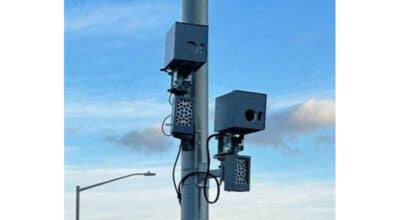About that report from the Sierra Club
Published 10:25 am Wednesday, August 3, 2016
Last week we reported that the Virginia Chapter of the Sierra Club named a certain area of Isle of Wight County to be third on its list of “The Top 25 Virginia Localities with the Highest Toxic Air Emissions” for 2014.
To be sure, a dubious honor.
Even if you missed the story in last Friday’s edition, you can likely guess what the club pointed to as the source of the aforementioned emissions. That’s right: International Paper’s Franklin Mill.
Based on analysis from the Environmental Protection Agency, which gets its information from the mill, the state chapter believes that what and how much comes out of the smokestacks — chemicals such as acetaldehyde, ammonia and methanol, to name a few — merits the public’s attention.
Fair enough. That is a major part of why the Sierra Club exists: To alert people to what it sees as potential dangers to people’s environment — be it air, water or land.
Being a watchdog of any kind, even with the best intentions, doesn’t automatically win the public to its view. For example, on the paper’s website we saw this response from David Chitwood:
“Must be nice to have a job at someplace like the Sierra Club. Don’t have to worry about nothing except what business you want to ruin, and not worry about jobs lost. After all, we can just import stuff from China.”
That’s an understandable point of view. After all, much of the local economy depends on IP. But we don’t think that the chapter is actively seeking to close industries so much as requiring them to comply with environmental standards intended to protect the public.
Speaking of which, we must point out that IP’s response for comment on the report was swift. There was no dodging or denying on the part of the mill’s communication manager Jennifer Railey. She pointed out that the IP works with “regulatory agencies to ensure that we comply with air emissions standards … To be clear, our Franklin mill meets U.S. EPA compliance requirements.”
To which she added that the company continually works to reduce air emissions wherever there’s an IP plant in the world. And as we’ve documented in this paper, the mill employees often participate in area projects to clean the environment, such as Earth Day and Clean Rivers Month.
We suggest that there are neither heroes nor villains in this instance, just two organizations doing their respective jobs.
It’s up to you to decide what to do with the information each provides.




